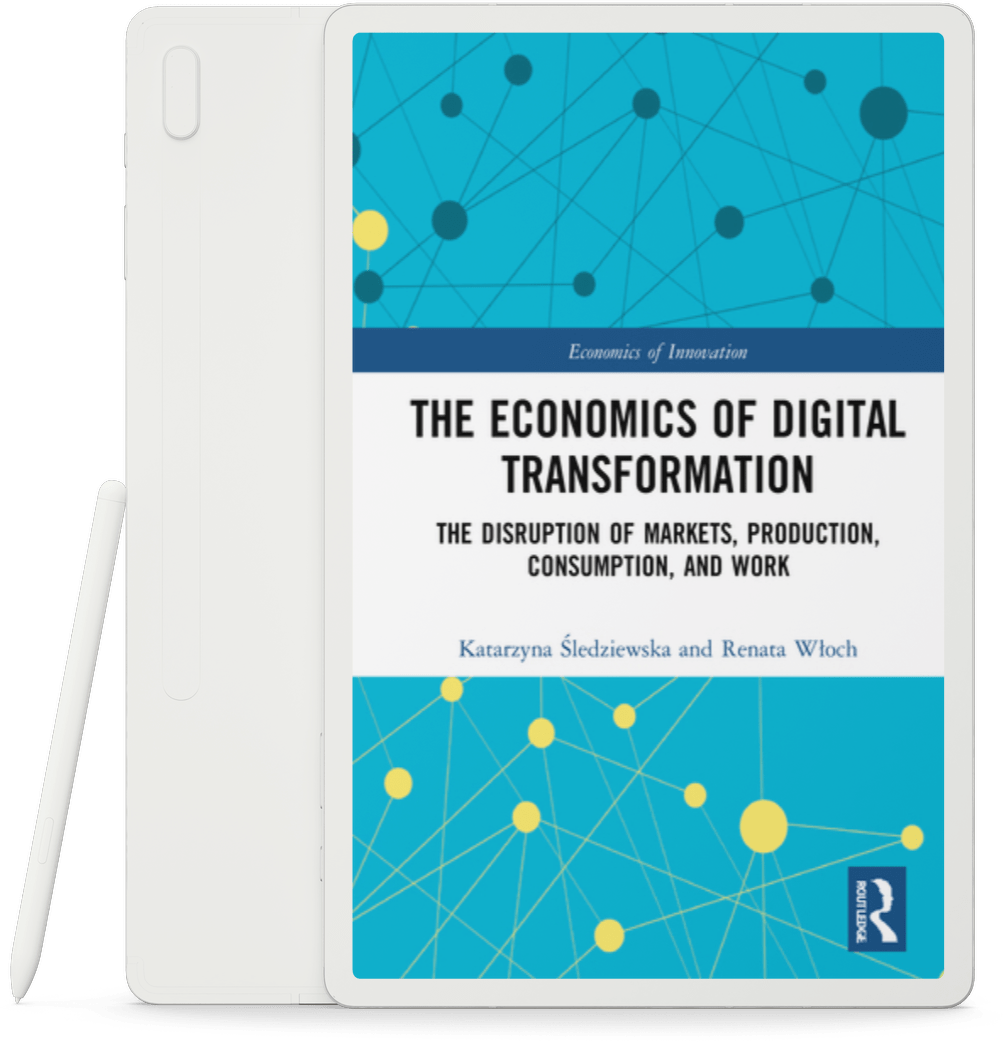
Śledziewska, K., & Włoch, R. (2021). The Economics of Digital Transformation: The Disruption of Markets, Production, Consumption, and Work (1st ed.). Routledge. https://doi.org/10.4324/9781003144359
Book and e‑book
The Disruption of Markets, Production, Consumption, and Work
Prof. Katarzyna Śledziewska, prof. Renata Włoch, Prof. UW
How are digital processes transforming traditional business models? Czy inteligentna automatyzacja zagraża naszym miejscom pracy? Are we approaching the end of globalisation as we know it? How can we best prepare ourselves and our children for life in a digitally transformed world?
ISBN: 978–10-031‑4435‑9
Routledge
London 2021
In the new book Prof. Katarzyna Śledziewska, Prof. UW and Prof. Renata Włoch, Prof. UW present a concise theoretical and conceptual framework for the process of digitalisation of the economy and its mechanisms, identifying the key mechanisms of the changes analysed: datafication(data effects) and platformisation(network effects). The unprecedented situation of a global pandemic has changed the functioning of individuals, but also of entire economic sectors.
The authors seek to answer a number of key questions about key developments in the digital economy:
- How is the development of digital platforms based on datafication proceeding?
- How does the introduction of dataification in the production of goods and services change business models?
- What implications does dataification have for human work – both physical and intellectual?
- How are digital changes, including the growth of cross-border data flows, affecting the global economy?
The digital economy being inherently globalised, this is particularly true for trade in services, which increasingly includes digital information goods (digital content), smart products, services (digital and localised) provided through global digital platforms. This changes not only the position of countries in the global economy, but also the position of governments themselves in relation to the so-called „Big Techs”. The huge shift towards remote working, education and entertainment has increased the dependence of households and businesses on digital infrastructure, products and services provided by a handful of powerful Big Techs.
The conceptual framework developed, updated with the effects of the COVID-19 pandemic and the associated accelerated digitalisation, is helpful in constructing empirically anchored interpretations, analyses and operational knowledge related to the digital economy.
The book contains numerous references to academic research in economics and sociology as well as empirical examples drawn from basic and applied research conducted at DELab UW.


